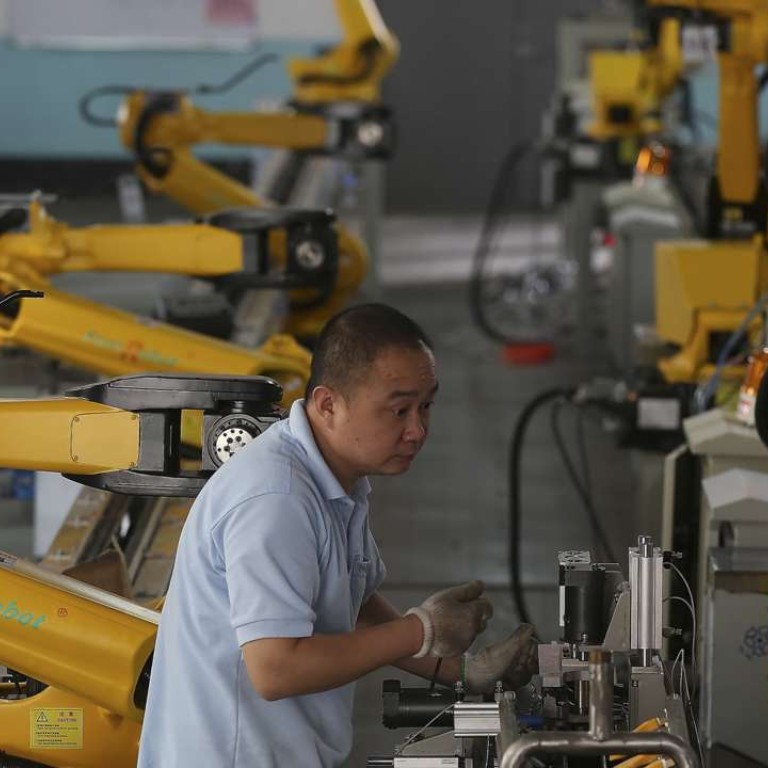
China unveils fresh tax cuts to spur growth
State Council’s measures include easing burden on small business and expanding scheme for start-ups
Beijing on Wednesday announced a new round of tax cuts to counter looming domestic challenges and to keep economic growth ticking over.
The cuts unveiled by the State Council are expected to reduce taxes by 380 billion yuan this year and come after positive first-quarter results.
In a statement after its weekly meeting, the State Council said the cuts would help to “improve business conditions and strengthen corporate vigour and impetus for innovation” amid lingering instability and complexity at home and abroad.
As it grapples with slowing growth and tries to steer the economy in a more sustainable direction, Beijing has reached for tax breaks and cuts in recent years to lend a hand to struggling businesses and revitalise the private sector.
The breaks also dovetail with the central government’s broader fiscal policy to be more proactive this year.
From July 1, the government will cut the number of value-added tax brackets from four to three and lower the value-added tax rate for agriculture and natural gas from 13 per cent to 11 per cent.
The mainland started replacing business tax with value-added taxes from 2012 to try to overhaul the country’s state-centric fiscal regime. The cuts helped to lower the corporate tax burden by 570 billion yuan last year.
The State Council also announced that the minimum taxable income threshold for small businesses would rise to 500,000 yuan from 300,000 yuan, allowing more small firms to fall into a lower corporate tax bracket. This will remain the case until the end of 2019.
Also extended to the end of 2019 are tax breaks for university graduates starting new businesses, for rural microcredit operations and for various kinds of businesses such as logistics firms.
The State Administration of Taxation said last week that small businesses were granted more than 200 billion yuan in tax cuts in the last two years.
The central government also said it launched a pilot tax relief scheme at the start of the year for tech start-ups in eight administrative areas, including Beijing, Shanghai and Guangdong. In addition, it raised the pre-tax deduction for small tech firms’ expenditure on research and development.
The State Council would expand another pilot scheme for tax deductions for individuals buying commercial health insurance nationwide from the second half of the year.
Economic growth rose 6.9 per cent year on year in the first quarter, its highest level in nearly two years and well above the government’s full-year target of 6.5 per cent.
The State Council said measures it unveiled in the first quarter were expected to cut business fees and charges by 200 billion yuan. Pledging to lower corporate costs, it admitted last month that non-tax fees and charges put a great burden on businesses.
These tax cuts aside, progress has been slow on overhauling personal income taxes, and introducing a property tax and inheritance tax, areas that are the cornerstones to fiscal reform.
The long-awaited revision of the rules on individual income tax is not listed as the reform priorities this year.

